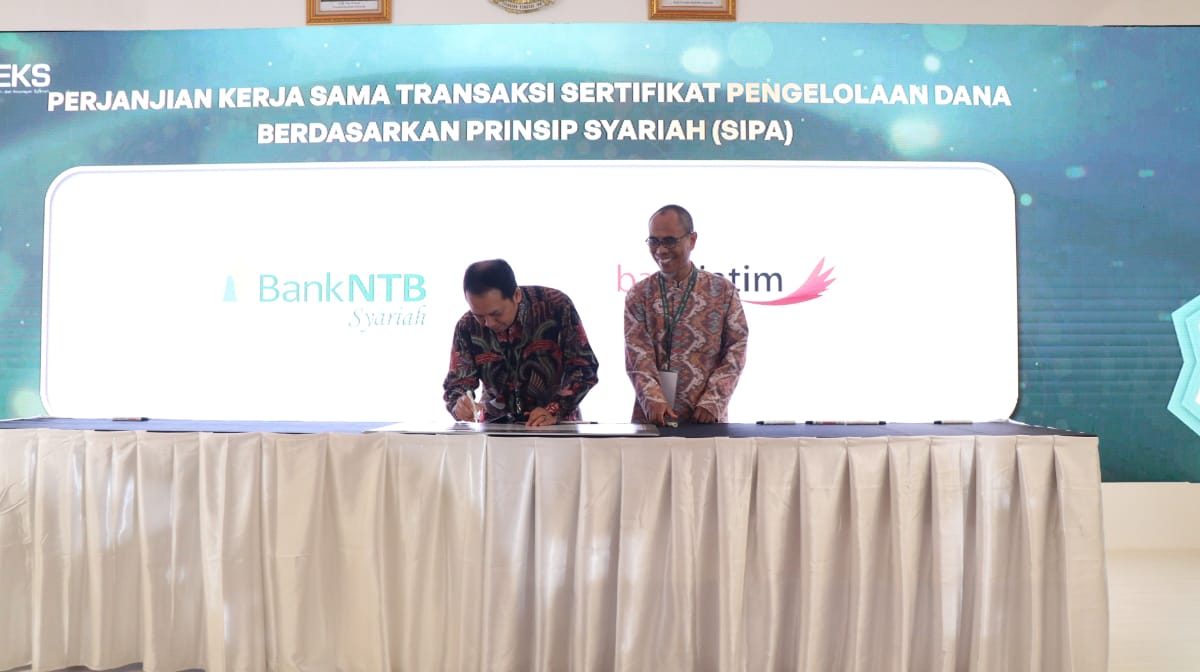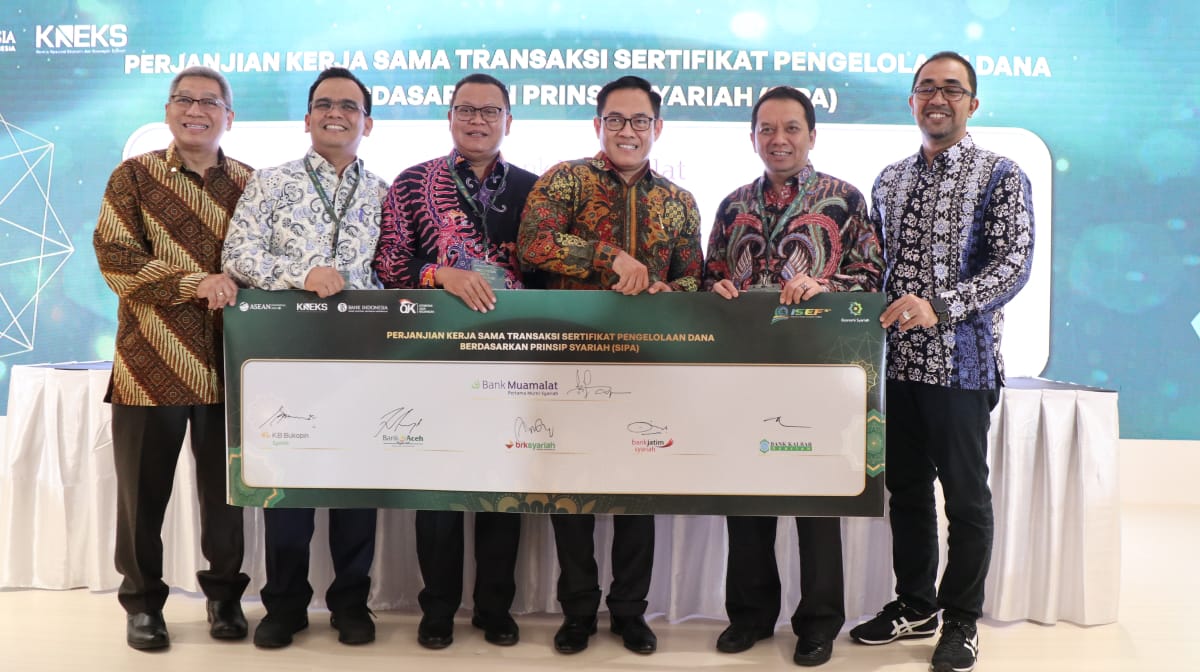UUS Bank Jatim Supports Strengthening the Sharia Interbank Money Market
Date: 27 october 2023Categories :

JAKARTA, OCTOBER 27, 2023. The Sharia Business Unit (UUS) of PT Bank Pembangunan Daerah Jawa Timur Tbk (bankjatim) has signed a Cooperation Agreement (PKS) related to the Interbank Sharia Principles-based Fund Management Certificate (SiPA) with 5 other Islamic banks. Namely Bank Muamalat, Bank NTB Syariah, BJB Syariah, UUS Kaltim Kaltara, and BSI. This cooperation was carried out as one of a series of Business and Financing Deals - Sharia Financing Month Indonesia Sharia Economic Festival (ISEF) 2023 at the Jakarta Convention Center on Friday (27/10). From the bankjatim side, the PKS was signed by the Director of Finance, Treasury and Global Services bankjatim Edi Masrianto. The activity was also attended by the Chairman of the Department of Sharia Economics and Finance (DEKS) Bank Indonesia Arief Hartawan and Chairman of the Indonesian Sharia Bank Association (Asbisindo) Hery Gunardi.
Edi explained that this agreement aims to strengthen the Interbank Money Market Based on Sharia Principles (PUAS). The cooperation includes SiPA transactions through State Sharia Securities (SBSN) and Bank Indonesia Sukuk (SukBI) instruments. "Synergies like this can further strengthen the structure of Islamic banking, both from the aspects of business, capital, assets, and liquidity and at the same time can be one of the drivers of strengthening the Islamic monetary structure in the country," he said.
Edi also revealed, UUS bankjatim very welcome the PUAS conducted by Bank Indonesia through the presence of SiPA. He believes that the presence of SiPA can make collaboration among Islamic banks better and have a positive impact on Islamic banking. "In essence, this cooperation is part of the support of UUS bankjatim to Bank Indonesia to increase the liquidity of the Islamic money market," he said.

Meanwhile, Chairman of Asbisindo Hery Gunardi on the occasion said that the Business and Financing Deals event is in line with the mission of ISEF, which is to integrate and realize ideas in initiatives that have a positive impact, both for national and international economic progress through the development of Islamic finance and economy. "The implementation of this business deal is expected to strengthen integration and synergy between market players and improve harmonization of relationships with regulators as policy makers," he said.
Hery explained, in the midst of the current economic turmoil, Indonesia's economic growth is still well maintained. It is estimated that in 2023 economic growth will be around 4.5 to 5.3 percent and is expected to increase even more in 2024. Then when viewed more deeply, Islamic banking also shows positive growth. Based on figures as of June 2023, both assets, financing, and Islamic banking deposits were able to grow double digits. "Islamic banking assets grew by more than 14% on an annual basis, financing grew by more than 17% year on year, and deposits grew by 10.27%," he continued.
Next, in terms of market share, Islamic banking also grew although it was relatively small, only in the range of 7%. According to Hery, this is both a challenge and an opportunity for Islamic banks to continue to grow. He hopes that with good collaboration between industries, the opportunity to increase market share is still open in the future. "As on this occasion, Islamic banking has carried out synergy or financial inclusion cooperation in several transactions according to sharia principles, including SIPA, Sharia Repo, SiKA, Custodian Banks, and financing distribution. We hope that in the future there will be more and more collaborations in order to advance Islamic banking," he said.
Bank Indonesia DEKS Chairman Arief Hartawan added that he hoped that the economic conditions and political situation in the future could continue to be conducive to support banking development. "We also continue to encourage the strengthening of the effectiveness of incentives to encourage financing both conventionally and sharia. The current policy focus is on the downstream sector, then housing, tourism, and also inclusive financing for the green economy. Then in terms of Islamic financing, it is still dominated by consumption, namely mortgages, KKB, as well as multipurpose," he said.

